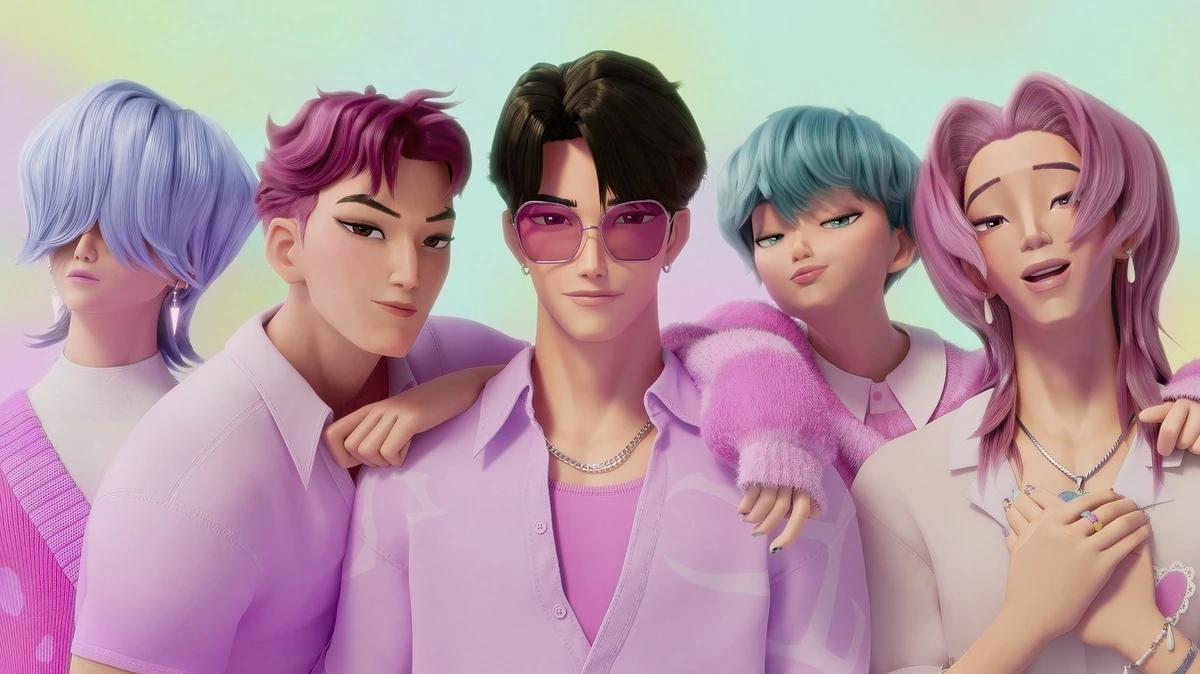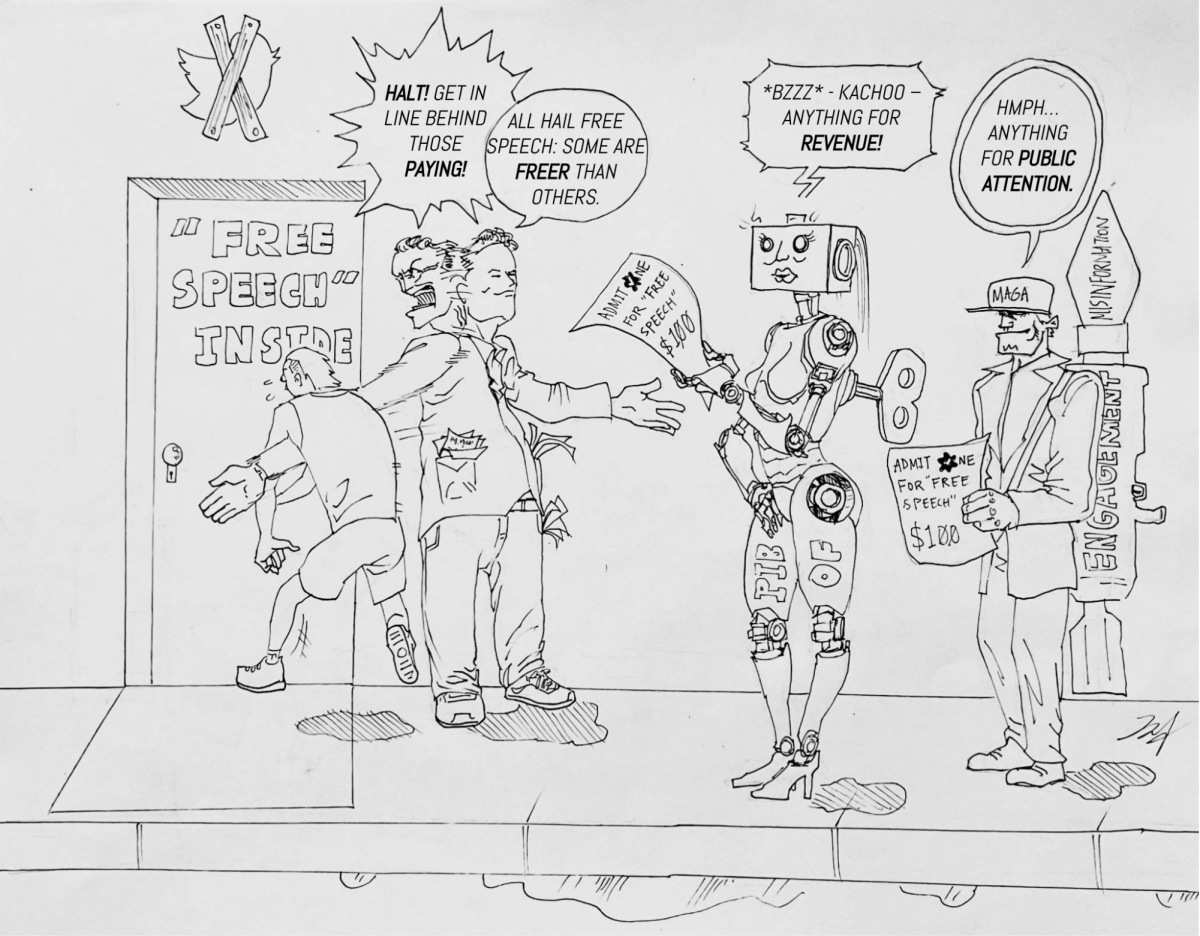Since its release in June, the popular film “K-pop Demon Hunters” has made significant contributions to the global understanding of the multifaceted, yet often overlooked, darkness within the Korean pop industry.
This movie has quickly become Netflix’s most-watched film, boasting over 236 million views. The soundtrack’s main song, “Golden,” has received multiple top-10 spots on the Billboard Hot 100. Additionally, the movie also delivers insight and awareness into the overlooked aspects of the K-pop industry.
The Saja Boys are a fictional, five-member boy group composed of members Abby, Romance, Mystery, Baby and Jinu. As a group of demons disguised as idols, their mission is to gain fans to weaken the opposing K-pop group HUNTR/X and bring the demon king Gwi-Ma into power. This group demonstrates how the K-pop industry commonly strips idols of their individuality and identity to mold them into concepts.
One of the film’s directors, Maggie Kang, mentioned that her team prioritized representing the fandom and the idols to intentionally emulate various aspects of the K-pop industry. Abby, known for his desirable figure, is a reflection of how the industry prioritizes body image as part of an idol’s marketability. Over-sexualization involves idols, regardless of age or gender, being presented in ways that highlight their physical appeal rather than their artistry. Similarly, the character Romance embodies the parasocial relationships between fans and idols, highlighting how the K-pop industry manipulates emotional attachment to maintain fan engagement. This further reveals the industry’s tendency to reduce idols’ value to objects of desire.
Mystery symbolizes the fear of an idol showing their true identity, illustrating how much idols conceal themselves to fit the industry’s expectations. Baby, on the other hand, represents childish or immature behavior, conveying how idols are expected to maintain a stereotypical, playful image regardless of their age.
Finally, Jinu represents the pressure to maintain perfection within the industry. His character is charming and appears flawless, highlighting how idols must constantly manage public perception.
In addition to exploring the pressures faced by K-pop idols, the movie has encouraged growth within the industry. Though the film’s title initially impacted some reviews, its growing popularity has helped challenge the stigma around the K-pop industry, offering meaningful commentary on Korean identity and the public pressures idols face.









